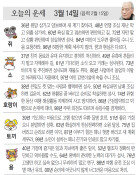Growth engine can be revived by lifting ‘regulations on conflict’
Growth engine can be revived by lifting ‘regulations on conflict’
Posted January. 18, 2023 07:45,
Updated January. 18, 2023 07:45
More than 70% of 4,410 corporate CEOs (CEOs) in 105 countries predicted that the global economy would go downhill in the next year. Two out of five respondents felt a sense of urgency, saying, “It is difficult to guarantee survival after 10 years unless the company is completely overhauled.” This is the content announced at the forum's opening after surveying CEOs attending the World Economic Forum by PricewaterhouseCoopers (PwC), a world-renowned management consulting company. It is the most pessimistic outlook since PwC started the survey in 2011.
The business prospects of Korean companies are similarly bleak. The Korea Development Institute (KDI) predicted on the 16th that the growth rate of the Korean economy in the first half of this year (January to June) would sink to the 0% range. Change and innovation are the only way for Korean companies to survive in the complex crisis combined with the slow growth rate in China, the largest export market, the war in Ukraine, inflation, and high-interest rates. For this reason, the head of the five domestic economic organizations unanimously requested the government about economic management this year to “relax regulations.”
Regulatory experts cite ‘conflict regulation’ as the area of improvement most urgently needed among regulations entangled like a spider’s web. According to a survey conducted by the Korea Chamber of Commerce and Industry of 50 regulatory experts on priorities for regulatory improvement this year, 26% cited conflict regulation. According to them, areas where the interests of the existing and new industries sharply collide, such as telemedicine or the shared economy, should be pursued first, as regulatory innovation is not easy.
Actively-adopted car-sharing services abroad have not been established in Korea due to the laws that ban TADA and similar ride-sharing services. Shared lodging businesses such as Airbnb are illegal in Korea if they target Koreans. Some startups are providing lodging services for locals through the ‘regulatory sandbox,’ but it is not easy to expand the business due to challenging conditions to abide by.
Telemedicine, in which medical consultation is conducted using a smartphone, etc., has become common in developed countries, China, and Indonesia. Korea, which has top-notch medical staff and IT technology, is an exception. In the wake of the COVID-19 pandemic, non-face-to-face treatment was temporarily allowed, but telemedicine and the delivery of medicines are still illegal. The non-face-to-face treatment platform, where patients use the app to choose the medicine they want and receive a doctor’s prescription remotely, was shut down within a month due to opposition from doctors and pharmacists.
Conflicts between new and old industries will inevitably increase due to digital innovation and the penetration of the platform ecosystem. It is the role of the government and political circles to coordinate and mediate conflicts between various stakeholders to find a breakthrough in innovative industries. The government should preemptively break down barriers to entry into new industries and seek a win-win conflict resolution model with traditional businesses to support corporate innovation. This is because innovation and growth cannot be achieved without resolving conflict regulations first.
The first in-person meeting between the U.S. and Chinese finance ministers is understood as a signal of strengthening communications between the two countries since the U.S.-China summit at the G20 meeting in Nov. 2022. U.S. Secretary of State Antony Blinken is also scheduled to visit China on Feb. 5 and 6. While the U.S. has recently tightened semiconductor export controls on China, the Treasury Department is reported to have suggested the need for a dialogue with China due to the concern that its chip export control may hurt itself.
As Secretary Yellen will meet with her counterpart in China ahead of her visit to African nations, where China is a major creditor, the topic of the two leaders will include debt forgiveness to African countries. The U.S. is on guard against Chinese influence in Africa and seeks to strengthen cooperation with African nations.
Headline News
- Opposition parties pass amendment to Commercial Act
- Impeachment motions against top officials dismissed
- IU's residence ranked as the nation's most expensive apartment
- K-medicine saves 300 lives in Mongolia through liver transplant skill transfer
- Prisoners in N. Korean camps suffer from torture at minus 30 degrees







